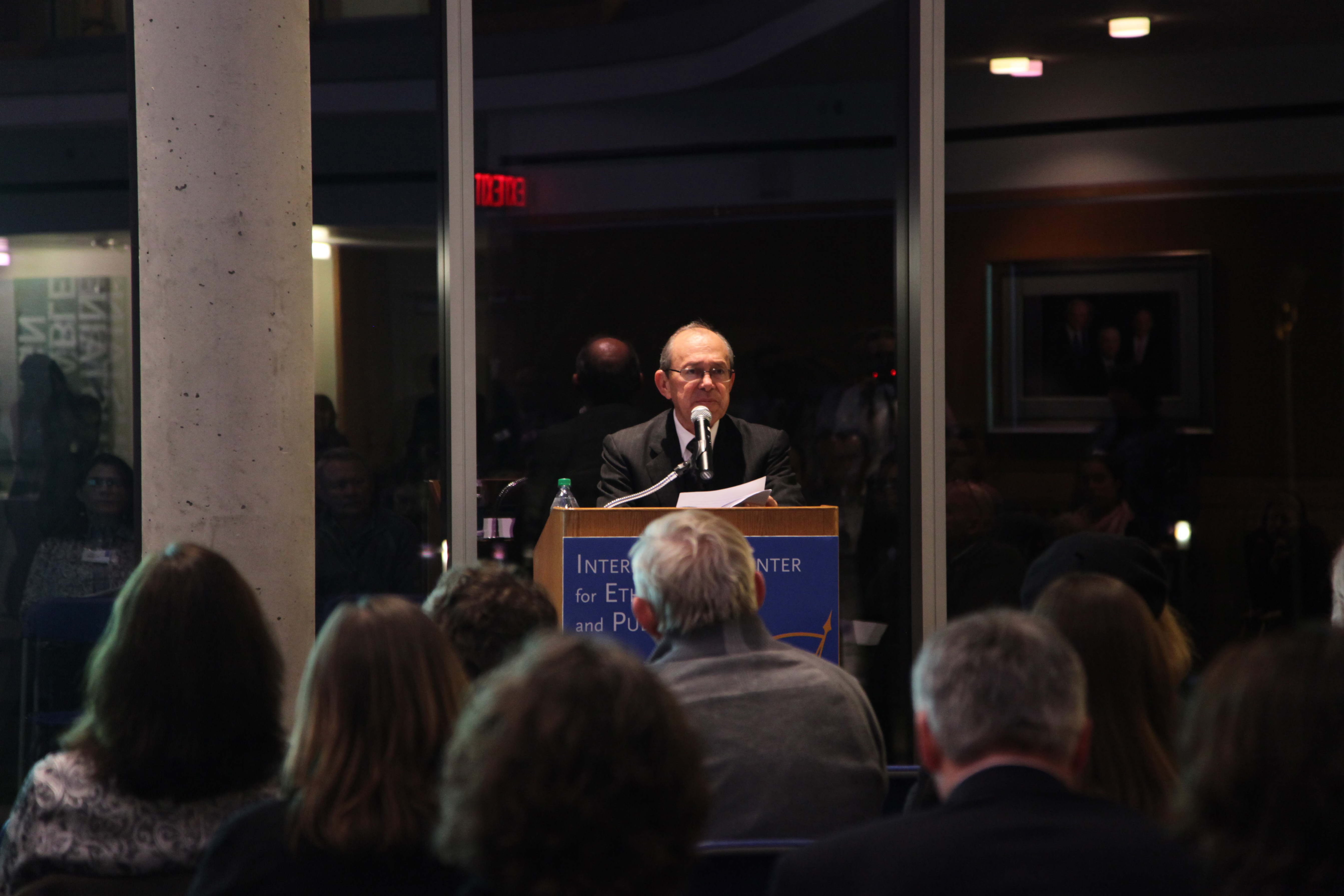Symposium addresses role of theater in justice
Ethics Center talk centers on how art helps communities reconstruct dignity following violence

Ana Correa, a member of the Yuyachkani Group in a previous visit to Brandeis.
The event took place on Dec. 1 and 2 and offered two full days of classes, panels and workshops. The focus was on Peru, Cambodia and the United States, and brought together scholars in the fields of law, transitional justice, and theater to discuss three overarching ideas: How societies best recover from widespread violence and human rights violations; what public ritual, theater, truth commissions and criminal trials each offer as justice-seeking strategies; and why communities use performative methods to understand violence and reconstruct dignity in its wake.
 |
| Salomón Lerner Febres (Photo/Robyn Spector) |
“How can we with our privileged glimpse into the enigmas of the universe,we the great dominators and transformers of nature, be at the same time the primary destroyers of dignity, and the greatest threat to the survival of our species?” Lerner Febres asked during his talk Thursday evening. “Since ancient times, art has emerged as a means of addressing these questions. The cultivation of art is not, as many still believe, a superfluous practice meant to decorate or cover up lesser ambitions.”
The commission over which he presided between 2001 to 2003 was tasked with investigating the 20-year period of violence through a variety of perspectives, while always aiming to provide some relief to the victims. The final report indicated that more than 69,000 Peruvians were killed, more than 70 percent of whom were rural Quechua-speakers, a historically-marginalized group. But informing the public of its findings through volumes of data wouldn’t be sufficient, Lerner Febres said. The commission therefore collaborated with the Yuyachkani Group, a troupe of actors whose name means “I am remembering” in Quechua, to reconstruct the public’s memory, which meant the “reversal of two principles that facilitated the horror – namely, silence and forgetting.”
The Yuyachkani Group, which visited and performed at Brandeis in 2007, helped reconstruct the country’s history through theater. Their work, Lerner Febres said, which helped prepare for hearings, was “not a matter so much of reproducing the facts as of producing effects, to reveal and convey the tragedies of Peruvian society. Performance heightens the senses and opens our imaginations to the deep truths that have gotten lost among the facts.”
“Theater, while it is clearly representation and without a doubt an exercise in fiction, is not to be confused with illusion or lies,” he said, adding through a translator that performance is a symbolic representation in which the spectator recognizes his or her own self. “The magic of the theater does not consist in an evasion, but rather in a clear and disturbing return to the facts. It is a masking that unmasks us, a fiction that restores to us, whole and legible, a set of previously scattered facts.”
Just Performance is directed by Cynthia Cohen and Leigh Swigart of the International Center for Ethics, Justice and Public Life and is organized in collaboration with Northeastern University School of Law and with the support of the Curtis International Council Fund of The Boston Foundation. The symposium is co-sponsored by the Department of African and Afro-American Studies; Latin American and Latino Studies; Legal Studies; Mandel Center for the Humanities; the Master's Program in Coexistence and Conflict; the Office of the Arts; and the Peace, Conflict and Coexistence Studies Program.
Lerner Febres said the Just Performance program is unique in its attempt to integrate the social and judicial processes with the expressive arts.
“It brings together power, mind and heart,” he said.
Categories: Humanities and Social Sciences, International Affairs






